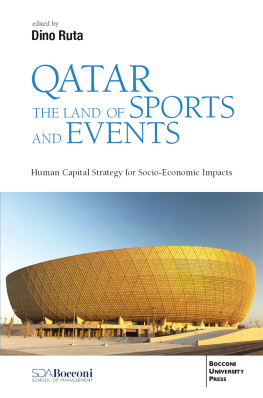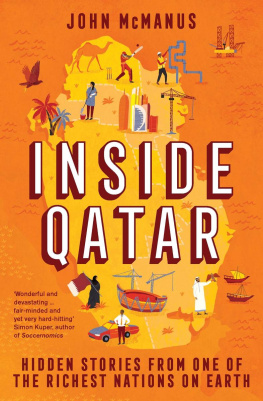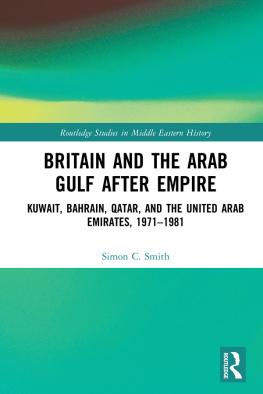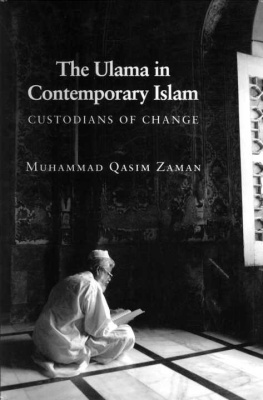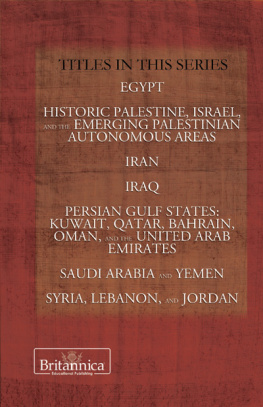JASSIM THE LEADER
FOUNDER OF QATAR
JASSIM THE LEADER
FOUNDER OF QATAR
Mohamed A. J. Althani

First published in Great Britain in 2012 by
PROFILE BOOKS LTD
3A Exmouth House
Pine Street
London EC1R 0JH
www.profilebooks.com
1 3 5 7 9 10 8 6 4 2
Copyright Mohamed A. J. Althani 2012
The moral right of the author has been asserted.
All rights reserved. Without limiting the rights under copyright reserved above, no part of this publication may be reproduced, stored or introduced into a retrieval system, or transmitted, in any form or by any means (electronic, mechanical, photocopying, recording or otherwise), without the prior written permission of both the copyright owner and the publisher of this book.
A CIP catalogue record for this book is available from the British Library.
ISBN 978 1 78125 070 9
eISBN 978 1 84765 912 5
Typeset in Bembo by MacGuru Ltd
Printed and bound in Britain by Clays, Bungay, Suffolk

The paper this book is printed on is certified by the 1996 Forest Stewardship Council A.C. (FSC). It is ancient-forest friendly. The printer holds FSC chain of custody SGS-COC-2061
This book is dedicated to my father,
who first told me the story of Jassims legacy,
and to my loving wife Hanadi and our children,
Layan, Jassim and Jude
CONTENTS
ILLUSTRATIONS
PREFACE
LODGED BETWEEN a page-nine advertisement for dentures and the ramblings of a retired Victorian bantamweight, Britains Daily Express published news of a historic visit on 24 January 1935. But in true journalistic fashion, and not stopping to let the facts get in the way of a good story, Lord Beaverbrooks paper made short work of misreporting the first ever official visit by a Qatari emir.
Few Britons had heard of Qatar. And, quite frankly, any Qatari national would have been hard pressed to believe that the headline Pearl King with 84 Wives had anything to do with their head of states attendance at King George Vs silver jubilee. Nevertheless, the article is historic; it acknowledged the Emirate as an independent, sovereign nation-state.
No doubt this fact was lost on readers, whose eyebrows were probably well up their foreheads on learning that Emir Abdullah, son of Jassim bin Muhammad Bin Thani, kept a court of astrologers, jesters, dancing girls and dervishes alleged to be gifted with prophecy. Im not sure who exactly would have alleged that probably the editor or some underpaid Express hack and there is no byline on the story either. But whoever wrote the article cannot ever have wondered what it takes to forge a divided, desert peninsula into a nation-state.
To appreciate what it took to create Qatar, were going to have to use a fair bit of imagination. Its easy to conceive of a time when there were no skyscrapers or schools, hospitals or roads, electricity or air-conditioning. But that is not nearly enough. To credit the true greatness of Sheikh Jassim bin Muhammad Bin Thanis achievements, well also have to imagine a land without security or borders, where British sailors and Ottoman soldiers, or Bahraini and Bedouin tribesmen, could and often did destroy entire villages.
In short, well have to imagine a place where there was no concept of unity except as an idea in one young mans head. Unlike with Kuwait or Oman at the beginning of the nineteenth century, there was no inevitability that Qatar would emerge as a nation in its own right. That it did so, and would become one of the richest and most influential for its modest size, is testament to a truly remarkable man.
QATAR DESCRIBED
Geology, cartography and a little local knowledge
The peninsula of Qatar covers an area of some ten thousand square kilometres, protruding, appendix-like, out of Arabia and into the Gulf. Technically, its surface consists of lower Eocene limestone and gypsum overlain in the south and south-west by Miocene marls and limestone. But to the layman, it is simple low-lying desert with two main folds in the west. This is the Dukhan ridge, where the first oil wells were drilled. These simple hills rise from the coast to a height of just over sixty metres, but extend for over fifty kilometres along the coast and five kilometres inland.
In the centre of Qatar is a gradual swell, known as the mid-peninsula rise, occasionally exposing a limestone of slightly different character from that elsewhere. Indeed, on the southern end and the eastern flank of the Dukhan ridge, the sharply defined mesas and wind-eroded hills make up a very alien landscape. It is this same wind the north-westerly shimal that blows sand over much of the southeast, where the largest dunes are to be found.
Although the peninsula is contiguous with the Hasa Province of Saudi Arabia, it is separated by vast salt flats. Travelling here can be a risky business, and the terrain appears to support local tradition that Qatar was formerly an island. This might in turn explain why, until about three hundred years ago, Qatar was often shown on maps as completely cut off from the mainland. But the most intriguing geographical features in Qatar are not to be found near the salt flats or the beautiful inland sea. Rather, it is the subterranean caverns the dahl which are the most magical. These collapsed caverns contain pools of refreshing water.
Local language
While many of the words traditionally used to describe Qatars geographic features are known to classical Arabic, most have taken on a more localised meaning. I mention some of these words in part to give the reader a taste for the local vernacular Jassims language. This is also a record, however, of a vocabulary that may not survive many more decades in the inevitable march towards development and modernity.
Central Qatar is a limestone plateau, known as the barr Gatarbarr meaning a stony desert. In Jassims time, a high rocky hill was known as a yihzila, whereas a small low mound was a hdiba. The western hills were known as the Mashabiyya. The wind-eroded hills of the east were sometimes known as gehaab, and the hills that form a very marked scarp, capped by a harder limestone, were known as birag because of the brightness of the rock, which makes them stand out clearly.
The term nakhsh means nose and is used for a prominent spur, as in, for example, the plunging end of the Dukhan ridge in the south. Two other terms, jurn and tiwaar, were also in general use. The former is an isolated horn-shaped hill, whereas the tiwaar is a flat-topped mesa.
As elsewhere in the Gulf, place names often begin with Umm or Abu that is, the mother or father of some natural feature, animal or tribal incident. Some of these places might also have been described as a rawda a semi-permanent grazing area with a well and a very low-lying grass called naiim covering it. Less useful pasturage, but with a little water, would be called a jiri. Leading into these depressions are small, shallow valleys the wadis well known in the West. Small, short stream courses in which a little vegetation was to be found were called shib. A little to the east of the central plateau are the smooth plains, the
Next page

